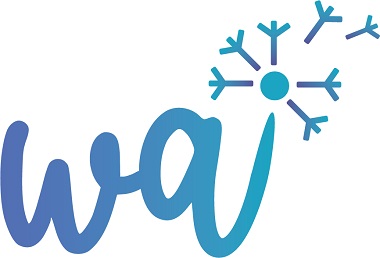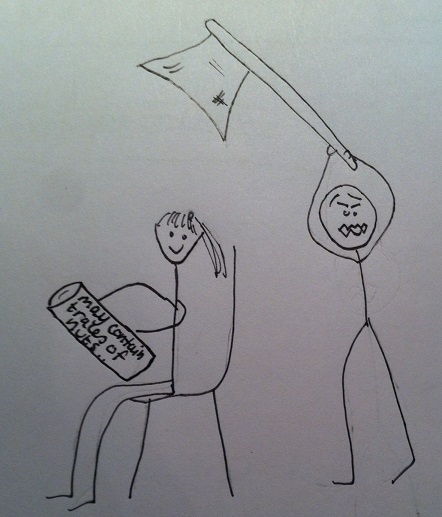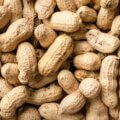Really? Surely there is something wrong with this headline…but apparently not, because a recent study appears to have found some evidence that breastfeeding alone for the first six months could mean higher risk of allergies.
It seems your damned if you do and damned if you don’t. Mothers these days have to wade through torrents of conflicting advice and research about the best way to raise a child.
Breastfeeding is best – NICE guidelines encourage breastfeeding, at least for the first six months because this helps build the babies immunity better than bottled milk.
So I was interested to hear of a recent Australian study from ‘The Journal of Pediatrics’ which heralds the findings, “Breastfeeding can mean more likelihood of allergies”.
Which do we believe? If you have a history of atopy or allergies in your family and are worried about your child having allergies, what is the right thing to do?
I know there are similar studies going on in the UK right now so I look forward to hearing the results of this.
Should kids be weaned as early as possible?
Or should parents wait to introduce allergens till two years old?
What order should allergenic foods be introduced?
I don’t have children myself but with multiple allergies and a husband with anaphyalaxis to shell fish there is a strong likelihood that any children we might would be at a fairly high risk of getting them. I have chatted to many mums, and even without the worry of allergies it’s a confusing time. Everyone throws advice at you, much of it conflicting but every child is unique so I think you just have to weigh up all the information and try the best you can for you and your baby.
Mothers of allergic children often feel that they are in some way at fault. That something they did may have caused their child to have allergies. My own mother craved peanuts when she was pregnant with me and also with my brother. I have anaphylaxis to peanuts yet my brother loves them. She has often wondered whether not snacking on nuts whilst pregnant might have saved me having so many allergies, but in particular the first one we discovered to peanuts. There have been studies that have proven that there may be a link and also that there probably isn’t one.
She used to drive me crazy, after I’d had an anaphylactic attack and before the days of EpiPens, she would sit by my bed waking me up whenever the rattling asthmatic breath began to slow or stop! I used to shout at her to just leave me to sleep, but even then, without any advice or knowledge about what was going on she was terrified I might not wake up and had no way of doing anything to help. She felt powerless. She still worries about me.
It really is a confusing issue. The study seems to suggest that children who were given food as well as breastmilk before six months were less likely to get allergies. Children can develop allergies even if there is no known history of allergies in the parents. What is a mother to do?
I’m sharing this because I read the research and was confused. Any mothers of allergic kids reading this. What do you think?












I wonder – breast is best I imagine, but what about all the traces of allergens the baby takes in? My son first displayed terrible eczema at about 4 months, and in the end at 7 months the consultant reluctantly advised us to put him on a special formula so we would know exactly what went into his system. None of this really feeds into the idea that the breast feeding caused the allergies – I think this study is just one more jigsaw piece in a hugely complex puzzle. I do know that I was trying to lower my cows’ dairy consumption at the time, as even then I knew he was allergic to that, and on advice from the health food shop ate more sesame to help replace the calcium…and my son has sesame allergy. A really good case of a little knowledge being a harmful thing, maybe? Then there’s also been the suggestion that very tiny amounts of allergens can do more harm than loads – eg trying to avoid nuts during pregnancy. It’s night on impossible without expert knowledge I’d say. The theories keep on changing with each new study, but it will all lead to definitive answers in the end!
In summary, I’d say this could be a useful tool to help find answers, but it doesn’t in itself tell us that breast is not best.
Hi Nicky. I hadn’t thought of the child being allergic to the mother’s milk. It’s a good point. If a baby is born with the allergy it would be allergic. Some scientists think exposure triggers sensitivity, but maybe some of us are just born faulty… and we just need to somehow teach out bodies not to react in this way. Science is on the way to discovering how to sort this out but until then, I guess we just have do what we can and avoidance if often the only way if reactions are really bad and uncomfortable. I know that I am allergic to my husband’s sperm if he’s eaten things I’m allergic to. Same idea as the breast milk containing allergens from food the mother has eaten. Condoms solve that problem if there is any doubt. Apologies for bringing up sperm and condoms. Ooo-err now it just sounds rude. Thanks for the comment. Very interesting.